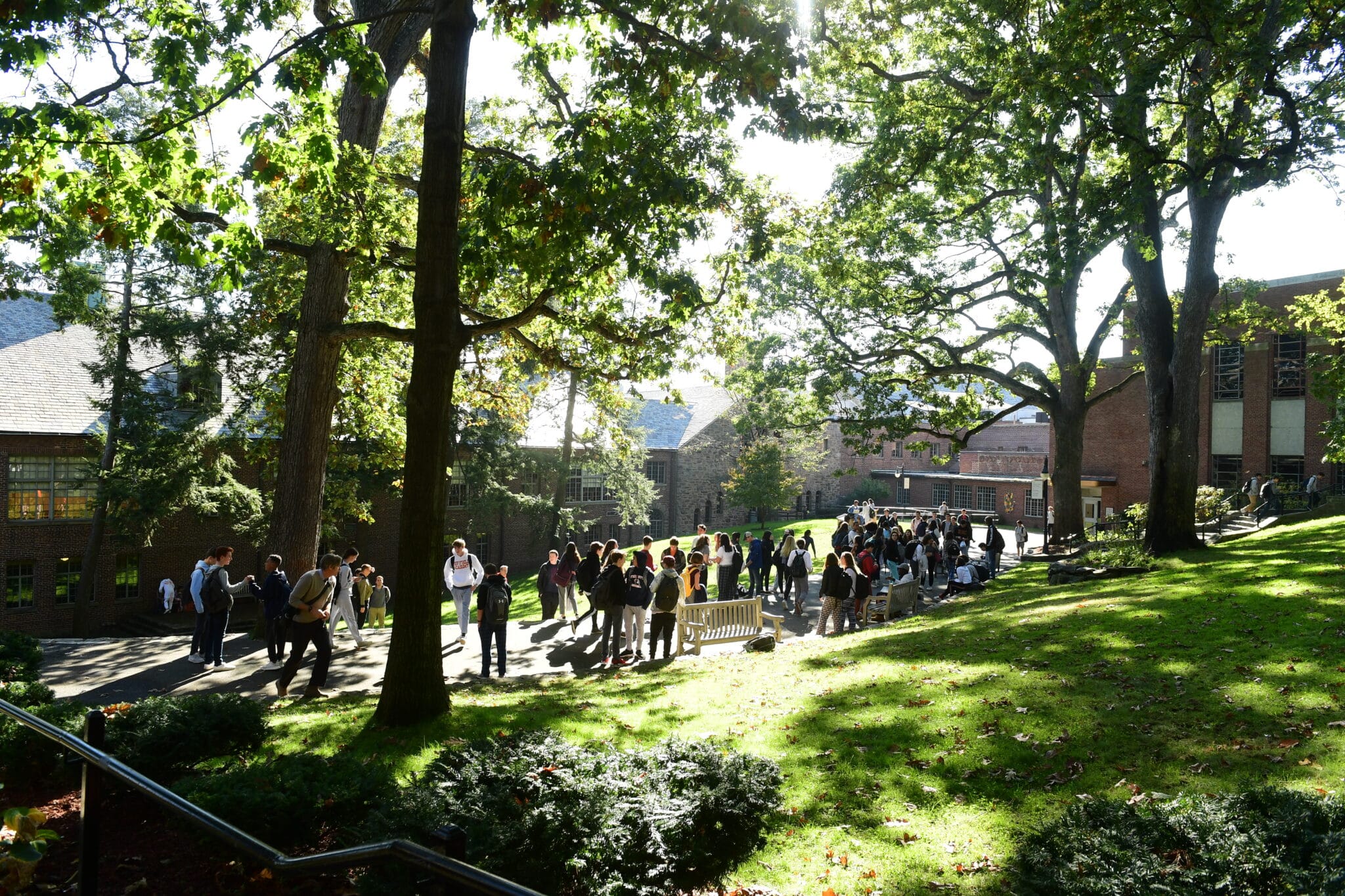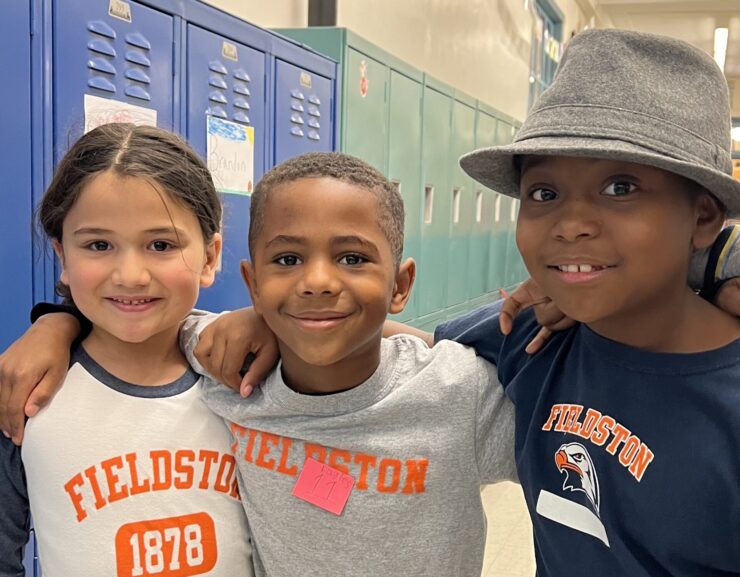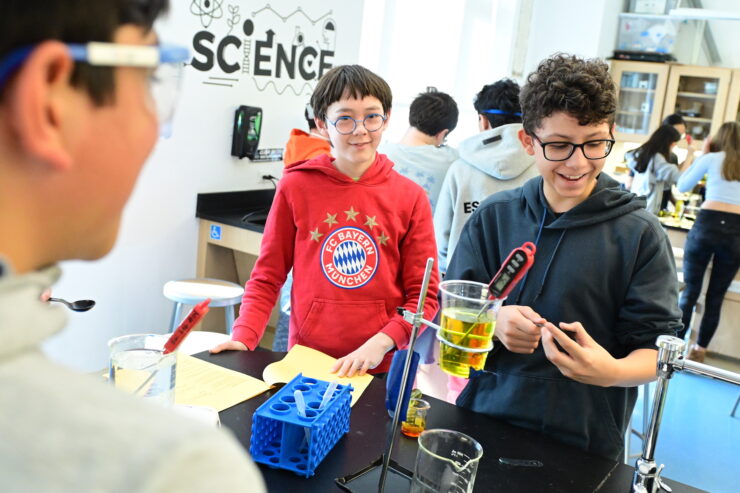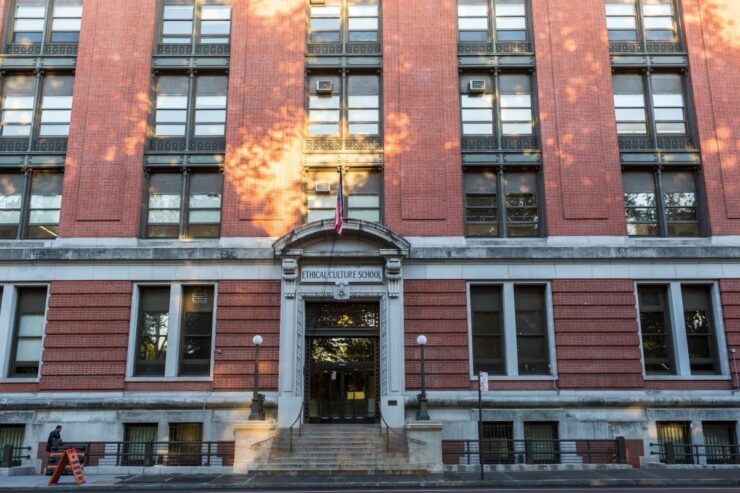Ethical values in a progressive curriculum
The Ethical Culture Fieldston School comprises four divisions, located across two historic campuses in Manhattan and the Bronx. Our two lower schools — Ethical Culture in Manhattan and Fieldston Lower in the Bronx — serve students in Pre-K through 5th Grade. Fieldston Middle, for students in 6th–8th Grade, and Fieldston Upper, for students in 9th–12th Grade, are both located on our Fieldston campus in the Bronx. Both Ethical Culture and Fieldston Lower have automatic admission into our Middle School.
Departmental Highlights at ECFS
Each grade designs its curriculum to present our students with the knowledge and skills that they will need to succeed in the 21st century. Emphasizing cognitive, interpersonal, and intrapersonal skills, our program challenges students to think critically and collaborate meaningfully. Through dynamic lessons and activities, students explore their identities and roles within the classroom and broader school community while also engaging rigorously in the study of Math, Science, Humanities, Ethics, and Language Arts. Our enduring goal is to cultivate their motivation, curiosity, active participation, and a lifelong love of learning.
Our academic program is built around ten core tenets of progressive education. Developed by our faculty and staff, these tenets guide all areas of the curriculum while honoring the expertise of our educators. Our core tenets do not prescribe a single method of instruction, but they invite pedagogical imagination and innovation to uphold the pursuit of academic excellence through student-centered learning.
Ethics
Ethics
In Ethics classes, students develop skills of critical inquiry and self-examination at each stage of development. These courses support social, emotional, and academic development, as well as moral development. As students mature, they have opportunities to explore their social identities and examine the nuances of ethical decision-making. Our goal at every stage is to challenge students to consider issues through multiple ethical lenses, excavate and develop their belief systems, cultivate critical literacy, and grapple with questions they find relevant and engaging.
History
History
The History Department’s primary mission is to instill an understanding that the past has shaped and influenced the present. Through analysis of a multicultural range of historical narratives and concepts, students develop effective communication skills as speakers and writers. While developing critical reading, writing, and researching skills, students learn to interrogate sources, assess historical and current events, and construct evidence-based arguments and analysis. Students consider ethical dilemmas from the past and present, as well as their impact and the outcomes they have had on people and societies.
English
English
The English program develops passionate and discerning readers, writers, and scholars who use the power of language to shape ideas and inspire change in the world. Through engagement with literature, students gain insight into themselves, their communities, and the diverse world around them. Writing instruction emphasizes clarity, coherence, and purpose, challenging students to refine their craft and express themselves with precision and an original voice.
Language
Language
The Department of Modern and Classical Languages empowers students to develop linguistic and cultural fluency that will allow them to thrive in authentic situations. Students are challenged to develop curiosity and confidence as lifelong learners of languages and to embrace ethical values as global citizens. Our program offers classes in Mandarin Chinese, French, Spanish, and Latin, and the work is anchored in our School’s values of academic excellence, progressive education, and ethical learning. In their language classes, our students gain rich communication skills, empathy, and global awareness.
Science
Science
Courses in the Science Department encourage exploration and hands-on experimentation, encouraging students to question, investigate, and discover. Students develop foundational and advanced scientific skills while also learning about historical perspectives and the diverse groups of people who have contributed to the body of scientific knowledge. Our varied learning environments — from labs to fieldwork — provide students with a range of authentic educational opportunities that reinforce core concepts and support both independent and collaborative research.
Math
Math
The Math Department challenges our students to engage deeply with mathematical skills, concepts, analytical thinking, and problem-solving. Within a progressive and supportive framework, instruction centers on student engagement and fluency in important skills. Lessons are tailored to the individual needs of each student, and we prepare them for advanced coursework, higher-level reasoning, and real-world application of mathematics.
Explore the pages below to learn more about the academic program at each of our four divisions. In addition, you can learn more about the ten tenets of progressive education that guide us in all grades and all areas of our curriculum.





